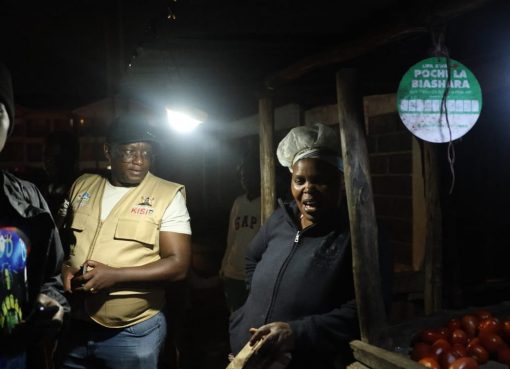Rice farmers in Mboghoni ward, Taveta sub-county in Taita Taveta County will benefit from mobile milling machines that will increase their earnings.
Speaking on Thursday in Mboghoni during the commissioning and testing of one of the mobile milling machines, Dr. Dominic Menjo, food security advisor to the president, said the machines are going to revolutionize post-harvest rice processing and potentially increase the price per kilo from sh. 40 to sh. 85.
Describing the machines as the missing piece to the puzzle of revitalizing the county’s rice value-addition chain, Dr. Menjo said, “Now farmers will have no reason to sell their rice at throwaway prices simply because they don’t have access to processing technology and equipment at their disposal.”
“The era of impoverishing Kenyan farmers is rapidly coming to an end because the national government is using a bottom-up approach to empower and support agricultural production at all phases,” added Dr. Menjo.
For many years, rice farmers in Taveta have been compelled by circumstances to sell unprocessed produce to brokers at around Sh40 per kilo who then take it to Tanzania for processing before the final product is imported to Kenya for not less than Sh100 per kilo.
“We’ve been hoping for a day like this when we will process our rice and sell it at the prevailing market prices and benefit from our efforts,” said Simon Msagha, a rice farmer from Mboghoni.
The mobile rice milling machines can process 1.5 tonnes per hour, a capacity that will come in handy during the harvesting season.
The county administration has joined hands with the national government to revamp the agricultural system through equipment and farmers’ training to support sustainable market growth throughout the value-addition chain.
Lauding the national government’s efforts, Christine Kilalo, Taita Taveta County Deputy Governor said the devolved unit’s administration is open to partnership, first and foremost, to protect farmers and their produce.
Kilalo said, “With strategic partnerships, we’re going to build resilient production and market chains that eliminate cartels, prevent post-harvest losses, and boost farmer’s earnings.”
On increasing rice production, County Executive Committee Member for Trade, Cooperative, Tourism, and Industrialization Getrude Shuwe said the county in partnership with the national government and other stakeholders is currently implementing a multi-pronged plan to increase rice acreage to 36,000 from the current 14,000 acres.
According to national data on food, Kenya imports 84 percent of rice consumed in the country, translating to approximately $275 million in expenditure and ranking the country at position 32 in the list of the largest rice importers globally.
The national government aims to reduce the gap in the import/export ratio by restructuring agricultural production, building farmers’ capacity, reducing input prices, taming post-harvest losses, and boosting market prices for produce at local and international markets.
By Arnold Linga Masila





